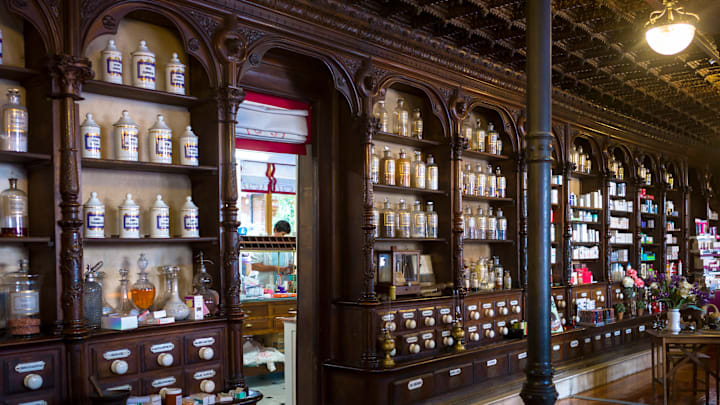When I finished The Poisons We Drink, I had to sit in silence for a good fifteen minutes as I processed everything I had read. I spent three days reading this one, but the last 60% or so of the book I read on the third day. It's not often I find myself at a loss for words, but this novel left me wondering, "How do I review a book that is this close to perfection?"
Well, I am going to try. And I am scared my words won't do the story justice.
I want to start with a warning: this story starts slow. It needs to. I wouldn't call it pacing issues, though I will admit it feels that way as you read. However, when the story needs to set up two different mysteries, an underground society, and a Very Dangerous political problem which makes this much exposition necessary. Once you know what you need to know, the story picks up and never slows down - and as a reader, you never have to worry about being lost because you have an excellent understanding of the world and the characters.
Speaking of understanding the world - the worldbuilding of this novel is exquisite. One of the hardest parts of creating an underground society is making it feel like it could exist in the world. While the setting is an alternate-D.C. in a world where magic users called Witchers are considered second-class citizens, it still stays true to the city we know in our world. Notable landmarks are mentioned, and descriptions of the locations could easily be pointed out on a map. In creating the underground society Baptiste shows us buildings that are enchanted to look empty to everyone but the desperate, portals that exist only in puddles, and aurora parties where a Witcher's aura combined with others has an intoxicating effect. The descriptions create a masterclass of how to effectively use figurative language, making it easy to imagine existing in this world - both in the good and bad.
The novel also provides a scathing commentary on United States politics. Bethany Baptiste explains in the author's note at the beginning of the book that the character of Venus Stoneheart came to her after the 2016 presidential election, born out of her anger at the results and a late-night viewing of the movie Practical Magic. Venus is a very personal character to the author, and this shows through every single page of the novel. Her anger and her pain drive her, but we also see the loyalty and joy Venus has for her community which mirrors the love Baptiste has when she talks about her own. This creates a well-rounded look at this aspect of American culture and allows the reader to truly sympathize with Venus and her family's struggles for acceptance in a world that doesn't want to give it to them.
The last thing I want to touch on is the fascinating character of "It." Born from a traumatic magical experience, It is a sentient magical parasite that resides inside Venus' natural abilities. It hungers for murder, mayhem, and destruction - tempting Venus to kill her enemies and destroy the systems built to oppress her. However, I found It's character arc in tandem with Venus' was one I truly enjoyed. They start as enemies, with Venus going so far as to take a daily potion to silence and bind It to keep It from having any power. But throughout the novel, they form an uneasy alliance, which as they learn how to work together, creates a powerful team. It's growth is a fascinating way of looking at anger as an emotion. We know anger can be destructive and cause terrible decisions, but when used properly, anger can also be used for positive change. Seeing this represented creates a powerful message for those who hope to change what's wrong in the world: it's okay to be angry, just use your anger properly. And I think this lesson is one of the most important takeaways from the novel.
Overall, this book is a thrilling debut book and incredibly deserving of its spot as an instant indie bestseller. It's timely as we come into yet another presidential election, thought-provoking, and embraces the idea a better future is possible if we work towards it by weaponizing our love instead of giving in to our hate.
I am also going to give one spoiler for the animal lovers out there, so I recommend skipping the rest of this paragraph if you don't want to know. The cat does not die in the book. As someone who hates beloved pet deaths in stories, I just wanted to make sure this was known. I won't explain why I am giving this assurance, for that you'll need to read the book, but Patches will be fine. I promise.
The Poisons We Drink is available through Sourcebooks
